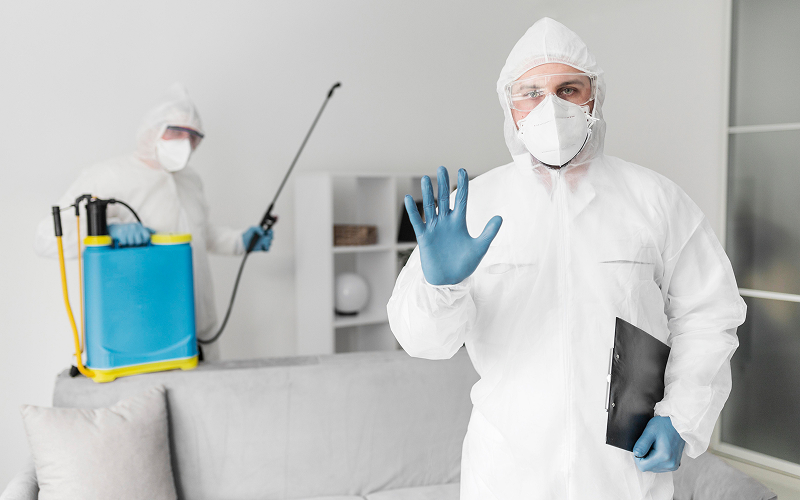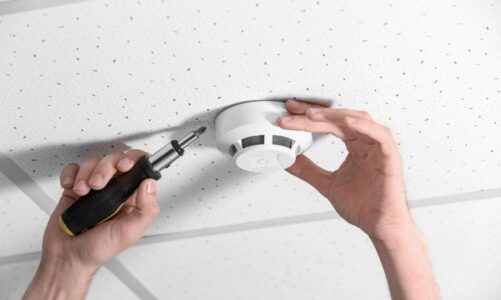A lot of us hold the widespread notion that managing every home cleaning task on our own is the most cost-effective and efficient approach. Although a fast clean or local treatment can be managed alone, this attitude, especially regarding larger cleaning tasks, may be harming your home’s well-being. Achieving a genuinely healthy home frequently necessitates a more profound comprehension of what exists below the surface, particularly when managing pollutants or dangerous substances. Neglecting the importance of hiring chemical disposal companies and ignoring the intricacies of specific cleaning jobs, their effects on indoor air quality can lead to enduring repercussions for your living space and, importantly, for the health of its residents.
Here are several reasons why relying solely on do-it-yourself methods might be compromising your aspiration for a pristine and safe dwelling.
Inadequate Hazard Identification
One main drawback of DIY cleaning, particularly after unexpected events like a burst pipe or minor fire, is not adequately recognizing all possible hazards. What seems to be minor water damage may actually serve as a hiding place for mould spores lurking inside walls or under flooring. Likewise, smoke residue goes well beyond visible soot, infiltrating porous substances and creating lingering smells and toxic particles. Detecting these covert threats is extremely difficult without specialised training and equipment. Experts are trained to evaluate a scenario comprehensively, detecting concealed moisture, invisible chemical remnants, and possible structural flaws that an untrained eye could completely overlook. This thorough evaluation is the initial stage towards real repair and a truly healthy living environment.
Improper Product Usage and Storage
The sheer array of cleaning products available to consumers is vast, and each comes with its own set of instructions and safety warnings. Misusing these products, mixing incompatible chemicals, or failing to follow dilution guidelines can lead to dangerous fumes, surface damage, or even a diminished cleaning efficacy. For instance, combining certain bleach-based cleaners with ammonia can create toxic gases. Furthermore, the improper storage of these substances, leaving them within reach of children or pets, or in environments where their containers might degrade, poses a significant risk. Understanding the chemical composition and the correct application method for each product is paramount, and a misstep here can turn a routine clean into a health hazard.
Overlooking Cross-Contamination Risks
To clean various areas of the home, it is easy to inadvertently spread contaminants from one surface to another. Using the same cloth for the kitchen counter and then the bathroom floor, for example, can transfer bacteria and grime. In more serious scenarios, such as cleaning up after a sewage backup or a rodent infestation, the risk of cross-contamination is significantly elevated. Without guidance of professionals and proper protocols, including the use of disposable materials and dedicated equipment for different zones, you risk spreading harmful pathogens throughout your living space. This practice undermines the very goal of creating a hygienic environment.
Incorrect Disposal of Hazardous Waste
Perhaps one of the most critical aspects often overlooked in DIY clean-ups is the correct disposal of hazardous waste. This is where the expertise of chemical disposal companies becomes indispensable. After tackling anything from old paint and solvents to lead-based dust from a renovation project or contaminated materials from a water damage incident, simply throwing these items into your regular household waste bin is irresponsible and potentially illegal. Such materials can leach into the soil, contaminate water sources, or release toxic fumes into the atmosphere, posing risks to both the environment and public health. Specialist chemical disposal companies possess the knowledge, licensing, and equipment to safely collect, transport, and process these materials, ensuring they are neutralised or disposed of in an environmentally sound manner. Neglecting this crucial step means you are not truly cleaning; you are merely relocating the problem.
Lack of Specialised Equipment and Techniques
Many significant cleaning challenges, such as extensive mould remediation, deep-set carpet stains, or post-fire smoke removal, require more than just elbow grease and off-the-shelf products. Professional services have access to industrial-grade dehumidifiers, HEPA vacuums, air scrubbers, and specialised cleaning agents that are simply not available to the average homeowner. They also employ specific techniques, such as dry ice blasting for smoke residue or encapsulation for asbestos, which are far beyond the scope of DIY capabilities. Attempting to tackle these issues without the right tools often leads to incomplete remediation, meaning the problem persists and continues to affect your home’s health.
Underestimating the Psychological Toll
Beyond the physical aspects, the burden of a significant clean-up can take a considerable psychological toll. The stress of dealing with unexpected damage, the uncertainty of how to proceed, and the sheer effort involved can be overwhelming. Recognising when a task is too big to handle alone, and seeking professional assistance, can alleviate this mental strain, allowing you to focus on recovery rather than the daunting task of remediation.
Achieving a truly healthy home goes beyond superficial tidiness; it demands a thorough approach, especially when faced with challenging clean-up scenarios. The common belief that all cleaning can be managed independently often overlooks the complexities of hazard identification, proper product use, cross-contamination prevention, and, critically, the safe handling and importance of chemical disposal companies.
Contact BELFOR Restoration Services for expert assistance with complex clean-up and restoration needs.



